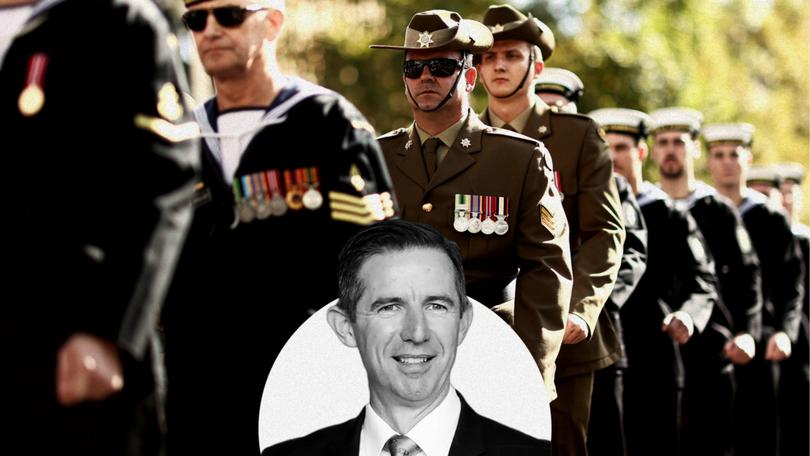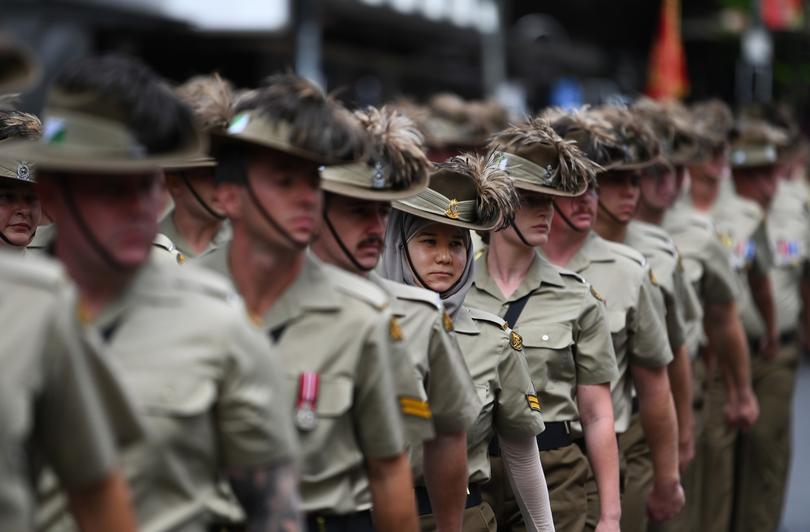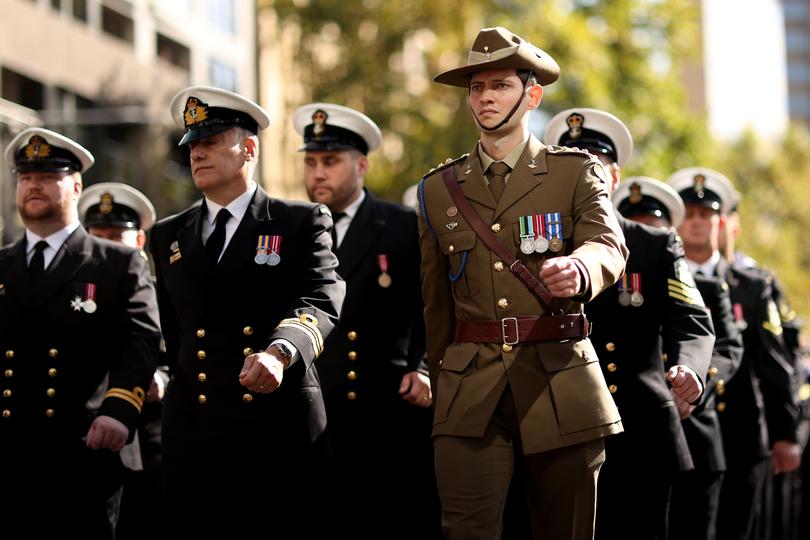SIMON BIRMINGHAM: We must be prepared to defend, and work for, the peace we all hold so dear
SIMON BIRMINGHAM: In the morning, we will remember them. We will honour their service and their sacrifice. Such reflection is crucial, but we owe those who paid the ultimate price more, much more.

In the morning, we will remember them. We will honour their service and their sacrifice. Such reflection is crucial, but we owe those who paid the ultimate price more, much more.
The ode recited on Anzac Day, so familiar to all of us, is taken from the fourth stanza of the poem For the Fallen, first published in London during the initial year of World War I.
The fallen soldiers who will “not grow old, as we that are left grow old” were, in the words of the first stanza, “fallen in the cause of the free”.
Sign up to The Nightly's newsletters.
Get the first look at the digital newspaper, curated daily stories and breaking headlines delivered to your inbox.
By continuing you agree to our Terms and Privacy Policy.That cause, freedom, is what we are the beneficiaries of today. Freedom of thought, belief, worship, and association. Freedom to work, to own property, of movement, and relationships. Freedom from discrimination, detention, or denial of basic rights.
These freedoms are not unlimited. Constraints are necessary to avoid harm to others. But the principles of freedom are inherent to the lives we live in Australia. And those principles are underpinned by our democratic system of government.
Defending freedom and democracy is the respect we owe to those who fought for it, and the responsibility we owe to those we hope will inherit it.
The defence of freedom and democracy comes in many forms.
First, we must believe in its merits. This sounds superficial, but at times in recent history, the public support for democracy as the best form of government has fallen, especially amongst young people.
Democracy is not perfect. As Winston Churchill acknowledged, “it has been said that democracy is the worst form of government except for all those other forms that have been tried from time to time”.
Despite those imperfections, we must be relentless within Australia in advocating democracy as the best option. Reflecting the will of the people, holding governments to account, and thereby maintaining basic rights and freedoms should not be a hard sell.
To be willing to defend democracy, children need to be educated about our own democracy, its history and the alternatives, so they understand the value of the freedoms we all too easily take for granted.
I am not into jingoistic patriotism for the sake of it. We should acknowledge the mistakes in our history and encourage critical thinking about how we make our nation even better. But this should not be at the expense of educating Australians about the merits of our democracy.
Australia’s positives far outweigh any negatives. There are few other countries that offer anything like the freedoms, the opportunities, the safety nets, and the lifestyle that we enjoy.
Let us be proud of who we are, what Australia has achieved, and what we stand for.

With self-belief comes the willingness to defend. To make the will to defend worthwhile, we also need the capability to defend our freedom and democracy.
Today, the freedoms the Anzacs fought for are threatened in many ways.
Authoritarian nation-states continue to pose a threat, as they did in the two world wars we remember. This is most brutally and dangerously reflected in Russia’s current war against Ukraine.
Others will seek to exert control in less overt ways, potentially threatening fields like commerce, trade, shipping, or communications. They may seek to rewrite international rules or reshape international organisations to the detriment of our values or interests.
Terrorist organisations also seek to disrupt our way of life, using freedoms as points of vulnerability. They target nations or ways of life they disagree with.
Again, this threat was horrifically on display when Hamas murdered so many peace-loving Kibbutz residents and young people at a music festival last October.
Why?
Because they were Jews, in the democratic state of Israel whose right to exist Hamas disputes.
Increasingly, technology poses threats to our freedoms and democracy. Misinformation and disinformation can be deployed by all manner of adversaries to undermine trust in our democracy and exacerbate divisions in our society.
All these threats require us to have comprehensive defence capabilities.
Traditional military defences require greater strengthening, faster. The United Kingdom has just announced that it will lift defence investment to 2.5 per cent of GDP by 2030, from a base of 2.3 per cent.

The UK is making a greater commitment every year than the Albanese Government is planning for, with a higher end goal, reached at an earlier point. Australia needs a similar, resolute plan.
Demonstrating such commitment to defence investment, coupled with smart reforms, won’t just be about military hardware, but also personnel. We need more Australians to proudly choose to wear the uniforms of our military and to happily stay in the service of our defence forces.
Defence capabilities don’t just end here though. Cyber resilience and space technologies are also crucial components of modern defence.
We also cannot do it alone. Deterring others from conflict or various forms of attack requires partners and alliances, such as the previous Liberal government’s achievements in AUKUS, the Quad or bilateral security cooperation with partners like Japan and Singapore.
Diplomacy is obviously essential to building those partnerships, and also to making the most of a deterrence capability so that it achieves the peace and stability we seek.
To whom much is given, much is expected. Our generations were given much by our forebears, especially those we remember on Anzac Day.
They would expect that we preserve the same freedoms for those to come.
Lest we forget.
Simon Birmingham is the shadow foreign affairs minister.
